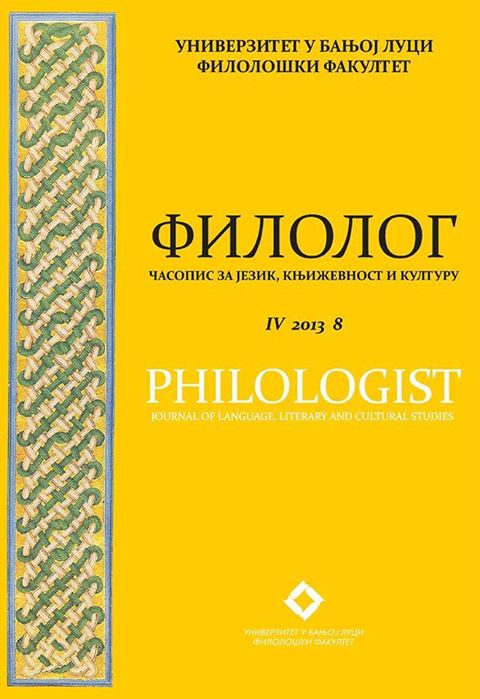Телесна деформација polidaktilija (’шести прст’) као база у антропонимији
Physical Anomaly Polydactyly (Extra Digit) as a Root in Anthroponymy
Author(s): Vidan V. NikolićSubject(s): Language and Literature Studies, South Slavic Languages, Philology
Published by: Филолошки факултет Универзитета у Бањој Луци
Keywords: Anthroponymy; motivated surnames; surname Altiparmak(ović); surname Šestinović; physical anomaly polydactyly (‘sixth finger’); Orientalisms in Serbian language.
Summary/Abstract: In this paper, we discuss the congenital physical anomaly polydactyly (‘extra digit’ ‘sixth finger’), from an ethnolinguistical and cultural standpoint, as a root for surnames: (a) Altiparmak(ović) – of Oriental – and (b) Šestinović – of Slavic origin. According to the motivation of origin, surnames of this type belong in the productive group – What are you like? Polydactyly is a physical anomaly of supernumerary underdeveloped bones from which supernumerary joints or entire fingers emerge. For surnames with Oriental origin, in the form of phrase alti parmak (‘sixth finger’), with a clear motivation and transparent etymology, the knowledge of their literal meaning has now been lost in Serbian language. Surnames like Šestić and Šestinović can have as their root the phrase ”šesti prst” (sixth finger), from the nickname Šesto/Šesta (more common); but also ”the sixth child“ (less frequent).
Journal: Филолог – часопис за језик, књижевност и културу
- Issue Year: 2013
- Issue No: 8
- Page Range: 59-68
- Page Count: 10
- Language: Serbian

